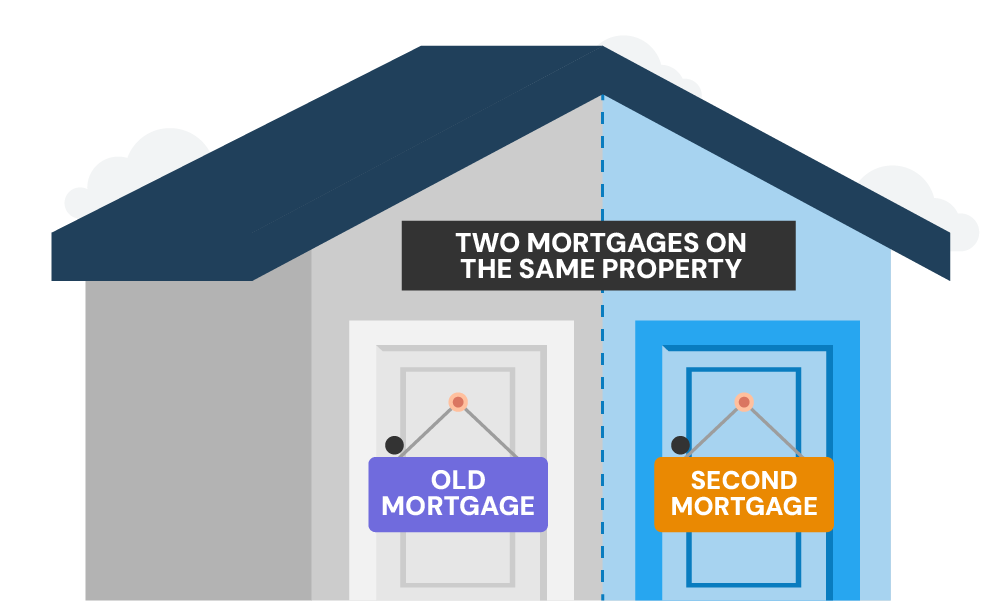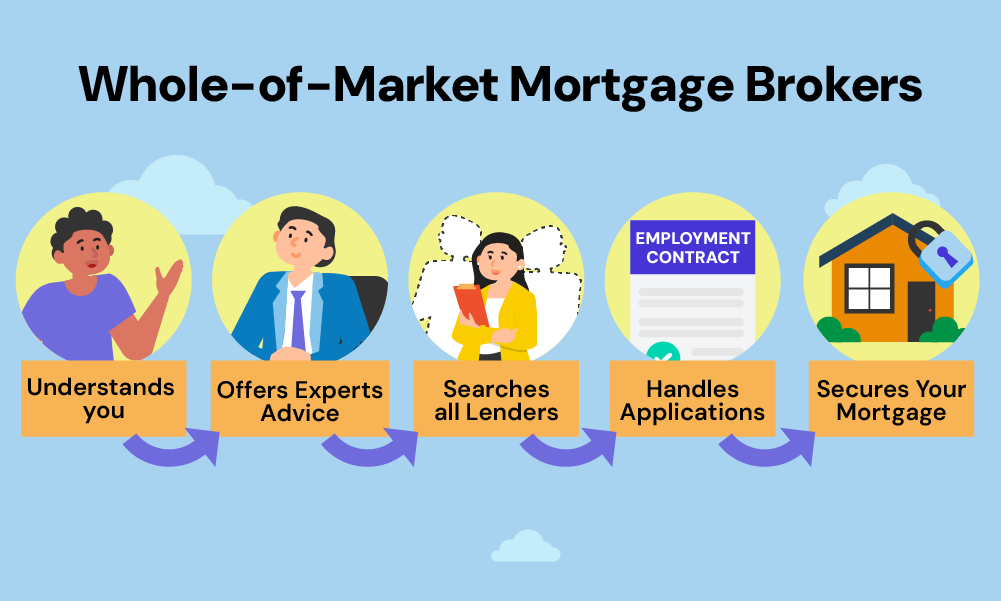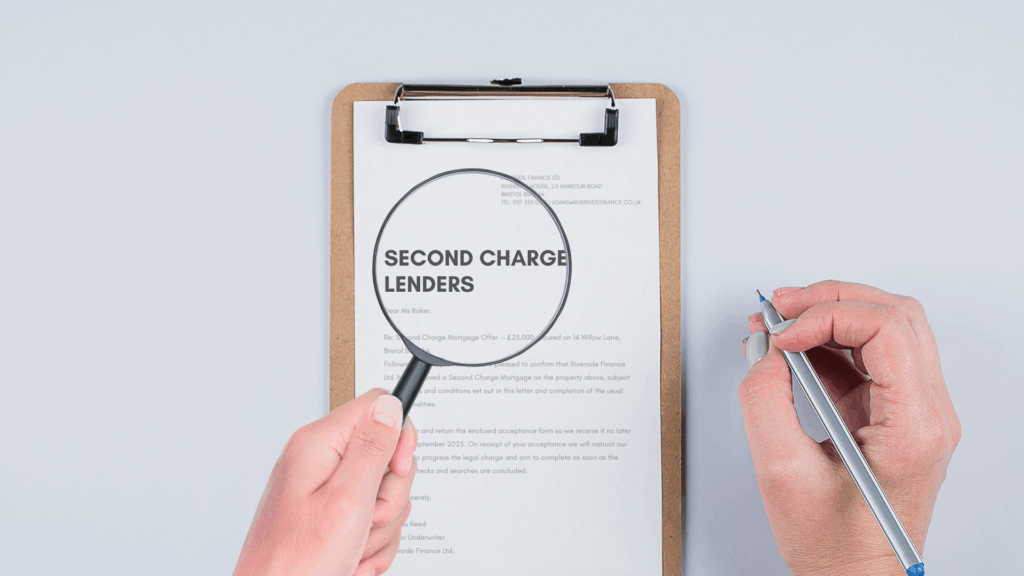- What is a Second Charge Mortgage?
- Who Needs a Second Charge Mortgage?
- The Role of Second Charge Mortgage Brokers
- Benefits of Using a Second Charge Mortgage Broker
- Risks and Considerations
- How Much Do Brokers Cost?
- Should You Use a Broker or Go Straight to Lenders?
- How to Choose the Right Second Charge Mortgage Broker
- Questions to Ask a Potential Broker
- The Bottom Line
How Second Charge Mortgage Brokers Help

In the UK, second charge mortgages are becoming more popular for homeowners who need extra money.
Instead of changing your current mortgage, a second charge mortgage lets you borrow more cash by using the value of your home as security.
If this sounds complicated, don’t worry.
There are experts called second charge mortgage brokers who can help. They’ll guide you step-by-step, finding a deal that works for your situation and helping you understand how it all works.
This guide will explain second charge mortgages in simple terms so you can decide if it’s the right option for you. It’s a way to use the value in your home to give your finances a boost.
What is a Second Charge Mortgage?
A second charge mortgage is a loan you can take out against your property, in addition to your existing mortgage.
In simple terms, it’s a second loan secured against the value of your home. You have your main mortgage, which is the first charge on your property.
Then, if you take out a second loan against the same property, it becomes the second charge mortgage.
The main thing to remember is that your first mortgage has priority.
This means if you can’t pay back your loans and your home is sold, the money from the sale pays off your first mortgage before the second one.
Taking out a second charge mortgage means you are borrowing more money against your home.
It’s important to be sure that you can manage the repayments for both your first and second mortgages because if you can’t, you risk losing your home.

Who Needs a Second Charge Mortgage?
A second charge mortgage can be a good option if:
- You have high early repayment charges on your current mortgage, and remortgaging will be costly.
- You have difficulty securing personal loans.
- Your credit rating has dropped or your financial situation has worsened since you got your first mortgage.
- You want to consolidate multiple debts into one loan.
The Role of Second Charge Mortgage Brokers
Second charge mortgage brokers are experts who can help you find the best second charge mortgage for your needs.
Here’s what they can do for you:
- Find the best deal for you by comparing different loans and focusing on interest rates and terms.
- Make the process smoother by helping with the application, managing the paperwork, and explaining the fine print in simple terms.
- Offer tailored advice based on your financial circumstances.
- Handle negotiations with lenders on your behalf.
- Provide ongoing support to help you understand how your second charge mortgage fits into your overall financial picture.
In short, second charge mortgage brokers can take the stress out of getting a second charge mortgage and help you get the best possible deal.
Benefits of Using a Second Charge Mortgage Broker
Hiring a second charge mortgage broker in the UK can have several advantages:
- More Lender Choices. They connect you with loads of lenders, meaning you get more mortgage options to choose from. This often leads to better deals.
- Top-Notch Negotiators. Brokers are good at negotiating. They make sure you get the best terms and don’t get stuck with a bad deal that could cost you more.
- Personal Touch. Every borrower is different, and brokers get that. They give you a personalised service, finding a mortgage that fits just right for your financial situation.
- Saves You Time. Searching for the right mortgage can take ages. Brokers do all the legwork, from searching to applying, which saves you heaps of time.
- Knows the Market Well. They’ve got the inside scoop on the mortgage market. This means they can give you up-to-date advice and find you the best rates.
- Helps with Paperwork. Let’s face it, mortgage paperwork can be a headache. Brokers help you sort it out so everything’s for your application.
- Risk Check. They look at the risks of different mortgages and help you choose one that’s safe and suitable for you.
Risks and Considerations
Before working with a second charge mortgage broker, be aware of the following risks and considerations:
- Choosing the Right Broker. Not all brokers are the same. Select an experienced, trustworthy, and Financial Conduct Authority (FCA)-regulated broker to ensure you receive the best deal and advice.
- Interest Rates and Terms. Brokers offer deals with varying interest rates and terms. Some may seem appealing initially but could cost more in the long run. Your broker should help you understand these details.
- Over-Borrowing Risk. A broker may secure you a larger loan, but borrowing more than you can manage is risky. Ensure your broker accurately assesses your financial situation and advises you on a safe borrowing amount.
- Hidden Costs. Some brokers may not disclose all fees upfront. Inquire about all possible charges, including their fees and any additional mortgage costs.
- Dependence on Broker’s Expertise. You rely heavily on the broker’s knowledge and skills. If they don’t fully understand your needs or the market, you may not get the best mortgage for your situation.
- Influence of Commissions. Brokers earn commissions from lenders, which might influence their recommendations. Ensure your broker explains how they’re paid and if this affects their advice.
How Much Do Brokers Cost?
Generally, they charge a flat fee between £500 and £1,000 or a percentage of the mortgage amount (1%-2%), usually paid at the end of the loan process.
Some brokers may request part of their fee upfront and the rest upon loan completion.
Alternatively, some brokers don’t charge you directly but instead receive a commission from the lender, often up to 0.5%, when the mortgage is finalised.
Should You Use a Broker or Go Straight to Lenders?
When deciding between a broker and going directly to lenders, think about the pros and cons.
A broker might cost a bit more at first because of their fees, but they can often find you a deal that saves money over time.
Going straight to lenders means no broker fees and sometimes exclusive deals, but they offer fewer mortgage choices.
Brokers give you a wider look at the market, unbiased advice, and save you time, but they might miss deals that are only available directly from lenders.
The big plus of a broker is the convenience and potential savings they offer in finding and managing your mortgage.
How to Choose the Right Second Charge Mortgage Broker
Finding the right broker can make a big difference:
- Look for Expert Knowledge. Choose a broker with deep market knowledge who can find the most suitable mortgage deal for you, especially if you have complex financial circumstances.
- Check for FCA Regulation. Ensure your broker is regulated by the Financial Conduct Authority (FCA) for protection and adherence to professional standards.
- Types of Brokers. Some brokers work with specific lenders, while others cover the whole market. Whole-of-market brokers generally have access to more deals.
- Understand Their Fees. Brokers may charge in different ways – a flat fee, an hourly rate, or a percentage of your mortgage. A trustworthy broker will be clear about their charges.
- Ask Key Questions. When meeting a broker, ask about their market coverage, fees, services, and availability.
- Reputation and Experience Matter. Look at customer reviews and testimonials to assess service quality. Check if they have the right qualifications, like the Certificate in Mortgage Advice and Practice (CeMAP).

Questions to Ask a Potential Broker
Asking the right questions leads you to the right answers. If you’re meeting a potential second-charge broker for the first time, it’s important to get all the questions at hand.
Here are 10 important questions to help you figure out if they’re right for you:
- What type of mortgage is best for me? A good broker should guide you through different options like fixed-rate, discount, or tracker mortgages, based on your needs.
- Why is this deal best for me? They should explain why a particular deal suits your circumstances.
- Can I get this product with bad credit? A knowledgeable broker can advise on options available to you, even with a less-than-perfect credit history.
- Are there any restrictions on this mortgage? Understanding the limitations is important.
- How much can I afford to borrow? Brokers can estimate how much you can realistically borrow.
- Do you cover the whole mortgage market? It’s good to know if they’re tied to specific lenders or offer a wider range.
- Will you recommend lenders not on your list? This ensures they are considering all options for you.
- How do you earn commission? Understanding their commission structure reveals potential biases.
- Can you show me all the mortgage options? Ask for a full list to ensure you’re seeing every choice.
- How much are your fees, and when do you charge them? It’s important to understand their fee structure for your financial planning.
>> More about What Questions to Ask Your Mortgage Broker?
The Bottom Line
Picking the right second charge mortgage broker isn’t just about ticking a few boxes; it’s about setting yourself up for financial success.
With a skilled broker by your side, you can:
- Wave goodbye to complex paperwork and get a crystal-clear grasp of mortgage terms.
- Receive personalised advice, perfect for those with unique circumstances like self-employment or a bad credit history.
- Access exclusive deals and rates not usually available on the open market, saving you time and money.
- Secure a mortgage tailored to your financial needs, without the added stress.
Put simply, consulting a professional broker can transform what might seem like an overwhelming process into something straightforward and manageable.
However, finding the right broker can be a tad taxing. It can feel like a full-time job, involving endless searches, interviews, and comparisons.
To ditch the usual hassle, get in touch with us. We’ll take the legwork out of it and connect you with a qualified second charge mortgage broker.
Get Matched With Your Dream Mortgage Advisor...

Frequently asked questions
How quickly can a second charge mortgage be arranged?
Typically, a second charge mortgage can be arranged in about 2 to 4 weeks. This depends on your circumstances and how quickly you can provide the necessary documents. A broker can speed up the process by efficiently managing your application.
What’s the difference between a second charge mortgage broker and a regular mortgage advisor?
Second charge mortgage brokers focus specifically on second charge loans. They have in-depth knowledge of this area and access to deals that regular mortgage advisors might not have. Regular advisors cover a broader range of mortgage products but may not have the same level of expertise in second charge mortgages.
Can a second charge mortgage broker help if I’m self-employed?
Absolutely! If you’re self-employed, a second charge mortgage broker can be especially helpful. They’re experienced in finding lenders who are more flexible with self-employed applicants and can advise you on the best approach to take.
Are second charge mortgages only for large loan amounts?
No, second charge mortgages can be for various loan amounts, large or small. They are a flexible solution for different borrowing needs, whether you’re looking for a significant sum or a smaller loan.
Can I pay off a second charge mortgage early, and are there penalties?
You can usually pay off a second charge mortgage early, but some lenders may charge early repayment fees. Your broker can clarify these terms for you and find a mortgage with favourable early repayment conditions.
How does a broker determine the best lender for my situation?
Brokers look at your financial situation, including your income, credit history, and the equity in your property. They use this information to match you with lenders offering the most suitable terms for your circumstances.
Is it possible to switch lenders for a second charge mortgage later?
Yes, it’s possible to switch lenders, but it may involve fees or additional paperwork. A broker can guide you through this process and help you decide if switching is beneficial for you.
What kind of support can I expect from a broker after getting a second charge mortgage?
After securing your mortgage, a good broker will continue to offer support. This can include advice on managing your mortgage, updates on changes in the market, and assistance with any future mortgage-related decisions.




